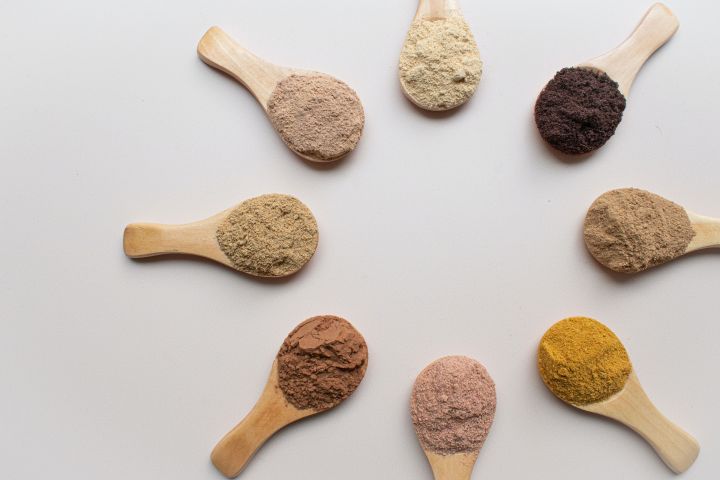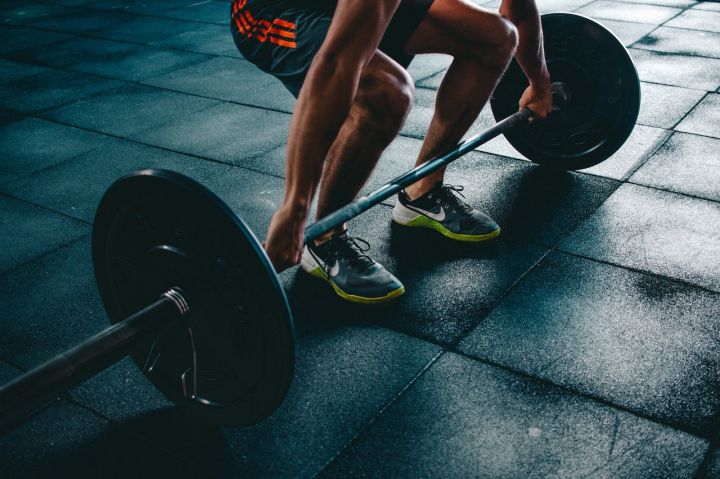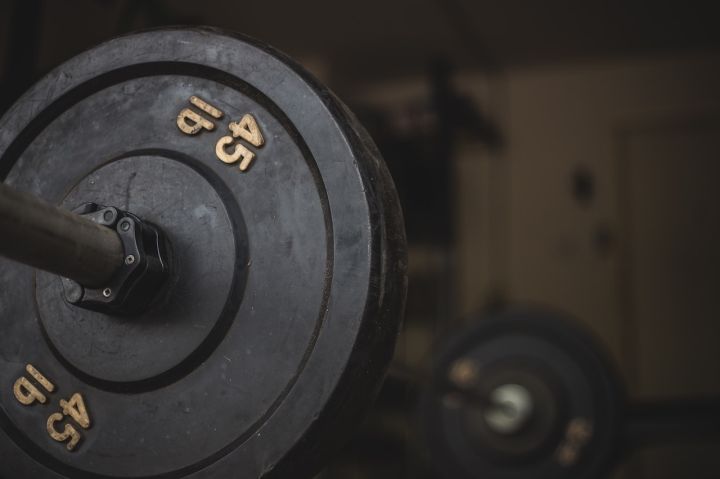If you've ever set foot on a gym floor, chances are you've heard people touting the benefits of creatine for muscle building. Maybe you even want to or have tried it yourself.

No one should put anything into their body without weighing up the pros and cons and risks. This applies to everything from beer to ice cream to creatine.
What is creatine?

Your body actually produces its own creatine through the kidneys and liver after consuming protein. Muscles convert creatine into creatine phosphate, which in turn is converted into adenosine triphosphate, which the body uses for strenuous exercise.
Manufacturers of fitness supplements have made creatine intake more effective. All you have to do is consume the nutrients in powder, liquid or pill form, rather than consuming a lot of protein to produce it.
It is also important to note:Creatine supplementation should be considered a protein supplement, not a replacement. This is because creatine and protein work in different ways. In short, creatine brings more strength during your workout, while protein brings more muscle repair after your workout.
The effects of taking creatine

Creatine increases the body's ability to produce energy quickly. Creatine is naturally present in our bodies to help us replenish our muscles, which is why some people take it as a supplement to improve their performance in the gym.
The principle is simple:If you can lift more weight in the gym, you will produce more muscle fibre tears and your body will be able to repair and rebuild bigger and stronger muscle fibre tears after a workout.
There is a lot of mixed research on creatine's ability to improve muscle strength, and the analysis in this study suggests that creatine appears to moderately improve upper body strength and lower body strength in both young and old people. Creatine has also been shown to improve athletes' performance in a variety of sports such as rowing, football and high jumping.
While some studies point to the effectiveness of creatine for high-intensity, explosive sports such as sprinting, the overall results have been mixed.
What are the short-term effects of creatine?

One thing is almost certain:If you take creatine, you will gain weight.
Creatine is a quick way to gain muscle, but it also requires some water and most people will gain 1-2kg of water (body water storage) in the first week of use."
There are some benefits to water storage too, creatine will bring more water into your muscles, giving you bigger and fuller muscles. However, water storage is not a good state for bodybuilders who are approaching a competition.
What are the long-term effects of creatine?

After the initial adaptation phase, the amount of exercise you can do in your workout increases.
Some people think that if they take creatine without training they will gain fat, but this is not true.
Creatine contains no calories and has no effect on fat metabolism. Therefore, taking creatine without exercise will only lead to no results.
What is the best form of creatine?

Not all creatine supplements are created equal.
If you are going to add a supplement, make sure it is creatine monohydrate.
Many supplements on the market have a lot of ingredients you don't need and they are much more expensive."
Powders are the best option. Studies have shown that liquid creatine and ethyl creatine are unstable and will break down in your blood system.
We recommend using 100% pure creatine powder. Some companies add electrolytes and other ingredients, but tests have shown that these do little to improve exercise levels.
The most cost effective way is to buy some creatine powder and mix it with fruit juice."
Juice? Yes, the sugar in fruit juice raises insulin levels, which helps increase creatine uptake by muscles. Sports drinks will also work.
You need 70 grams of simple sugar per 5 grams of creatine and it is recommended to find a drink or supplement with 60 grams of carbohydrates per 100 grams of product to use with it.
You will know that the powder is of poor quality if it is difficult to dissolve and there is residue at the bottom of the glass after drinking. If this happens, try a different brand.
And creatine pills? While they are effective, you often have to take a lot of them to achieve an effective dose. If you like taking pills, then go for it. But for most people, powders seem to be the best option.
What foods are high in creatine?

Just as our bodies produce creatine, this chemical is found in a variety of foods.
It is actually found in beef, pork and salmon.
Try these creatinine-rich recipes:
One-pot steak dinner
Pork chops
Grilled salmon fillet
Can creatine disrupt our kidneys, blood sugar or cause muscular dystrophy?

Researchers have been studying the effectiveness and safety of creatine. This is why many coaches and health professionals support the use of creatine as research has shown it to be safe.
Creatine is one of the most researched sports supplements and there is no official official information to suggest that it is unsafe.
There have been some reports of side effects such as kidney damage, blood sugar problems, heart problems, muscle cramps and strains, dehydration and diarrhoea.
We're not saying people don't get cramps, but i don't think cramps are a common problem, but if there were any significant side effects, we'd be seeing them now during use.
Some medical experts also suggest that some of these symptoms may be due to excessive intake of certain vitamins. Too much vitamin c can cause diarrhoea and too much iron may cause stomach problems.
To be on the safe side, he recommends using creatine only if you are healthy and have no kidney problems. This is because the kidneys excrete creatinine, which is a breakdown product of creatine.
Is there really no side effect to taking creatine?

If you can get bigger without it, there is no reason to use creatine. Weigh the pros and cons before trying it."
As a general rule, minors under the age of 18 should avoid creatine. They are still in the growth phase and we are not sure what effect creatine will have on their muscles and bones as they grow. That's why it's recommended that middle schoolers and even high schoolers should not use it."
Will creatine increase my strength, power and weight?

Creatine has a different effect on everyone. Some people do not respond to creatine and this is generally genetic.
If you have started taking creatine, you should try it for a week or so. If your training volume has increased, it is working for you. If not, creatine won't help you.
Also, usually those who don't eat foods high in creatine usually have a better response. Those who eat a lot of meat may see less change.
When and how to take creatine monohydrate

Creatine monohydrate is available in several dosage forms such as tablets, capsules, powder mixed with water or any liquid beverage. When you take this supplement, it is important to know the appropriate time and method to take it in order to maximise its effectiveness.
Previously, it was highly recommended that you take creatine monohydrate before your workout. This supplement helps to replenish creatine stores in your body, but should it be taken before a workout?
When is the best time to take creatine monohydrate?

To understand the best time to take creatine monohydrate, it is important to familiarise yourself with the three phases involved - the shock and maintenance phases and the cycling phase. The cycling period is optional, but you can take a month off after three months of use. After the break, you can enter the shock phase again and experience the same results.
The shock period
When you first start taking supplements and try to produce creatine in your muscles, you should take a certain dose. It is highly recommended to take 4 doses of 5 grams of creatine monohydrate each time during the shock period. Take one in the morning when you wake up, one before and after your workout and one before bedtime. This phase takes about 3-4 weeks, followed by a maintenance phase.
Maintenance phase
During the maintenance phase, you take only one dose of creatine (5 grams) per day to maintain creatine levels in your muscles. It is recommended that you split the dose into two portions, one before your workout and the other afterwards. In this way, you can increase your muscle mass considerably. Scientific studies have shown that in combination with protein and carbohydrates, this supplement has amazing results.
Therefore, if you are considering taking this supplement, you may want to take it at the best time to get the most benefit. There is evidence that when you take it with carbohydrates and protein within half an hour of completing your workout, it will benefit you. Creatine works well at almost any time of the day, which is why people have different opinions on the best time to take it. However, 80% of users admit that it is much more efficient before and after a workout.
How to take creatine for best results

The problem with creatine monohydrate is its absorption. You definitely want it to be delivered quickly from the stomach to the muscles. Insulin is responsible for storing glucose as glycogen in the cells, and not only that, it is also responsible for transporting creatine. Therefore, what we need to do is to stimulate the secretion of insulin to help the muscles transport creatine from the stomach quickly. In order to do this, you need carbohydrates in your stomach, which will break down into glucose, which is then absorbed into the bloodstream. Whenever you take creatine monohydrate, you need carbohydrates.
It is standard practice to mix creatine with a high sugar drink such as grape juice, glucose powder or a sports drink. Basically, the idea is to use simple sugars to raise insulin levels and thus increase insulin absorption. However, it is important not to overdo it as mixing creatine with 30g of simple sugar per day adds extra calories, which is approximately 840 calories per week.

Finally, we would like to say that creatine is only a supplement and that only hard training and a sensible diet can really improve the muscle levels and the basis of strength.





